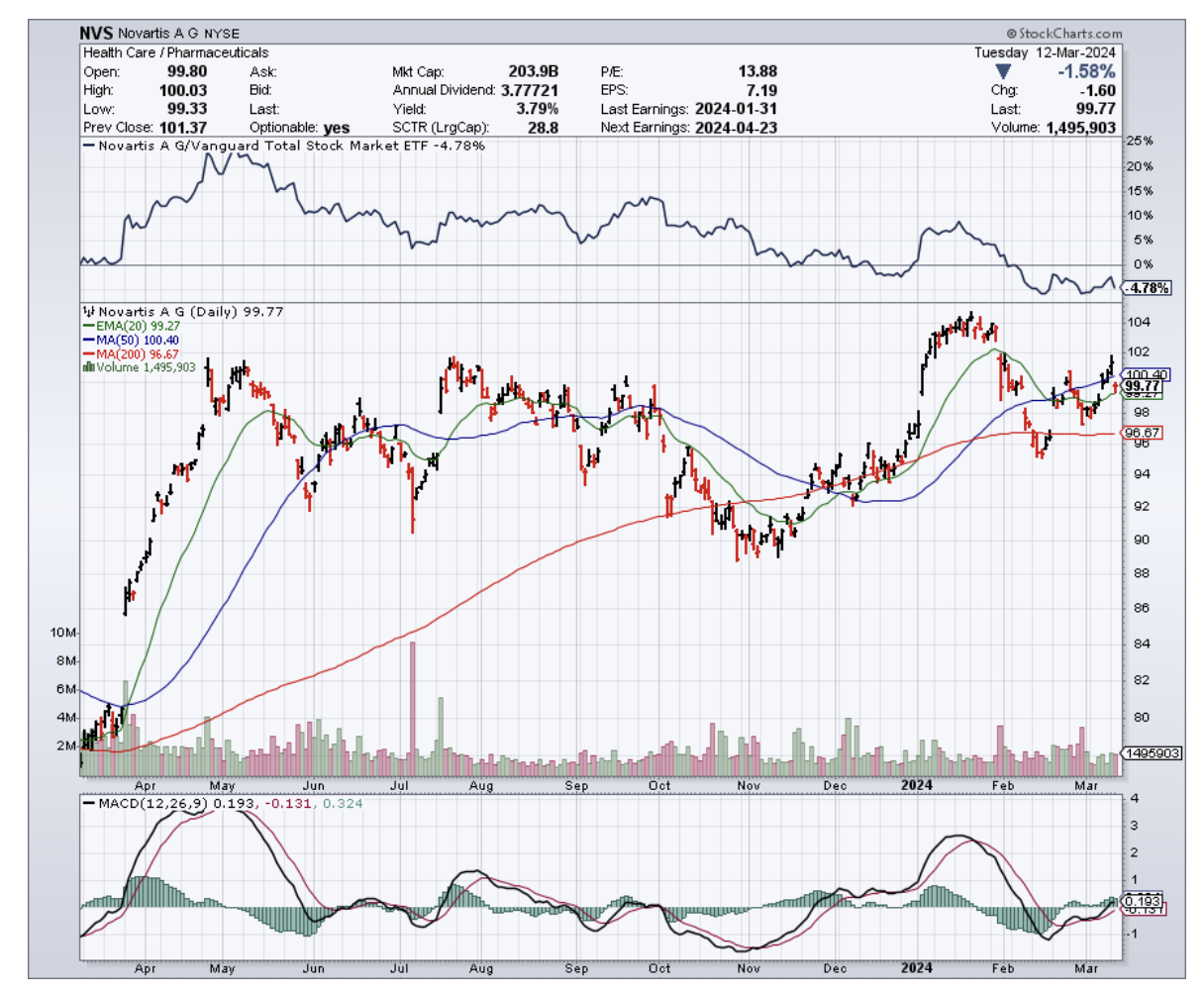Tipping The Scale
Imagine, if you will, me sitting down for my morning coffee, flipping through the latest in the biotechnology and healthcare world, when I stumble upon a story that's about as juicy as they come in the world of pharmaceuticals.
The headline? Novo Nordisk's (NVO) stock is on a joyride to the moon, courtesy of their latest heavyweight champ in the weight-loss drug arena, Amycretin.
And let me tell you, this isn’t some minor upgrade. This new candidate is like Wegovy's bigger, bolder cousin.
Now, for those of you who've been tracking the pulse of the market with me, you know I've got a soft spot for stories like these. It's not every day you see a drug come out swinging, making Wegovy look like it's been skipping gym sessions.
As for Novo, the stock didn't just jump following the reports about Amycretin’s performance. It practically did a backflip, soaring over 7% in Copenhagen. And Stateside? We're talking an 8.4% leap to a whopping $135.28. Yes, my friends, that's record-breaking territory.
Let me put this into perspective. Novo Nordisk, with this surge, practically eyeballed Tesla's (TSLA) market value and said, "Hold my beer."
We're talking about a market cap north of $560 billion. Makes you wonder if Elon's feeling the heat, doesn't it?
But this isn’t the last time we’ll hear about Wegovy. Novo’s former golden child of weight loss hasn't been kicked to the curb yet. Far from it.
In fact, the US Food and Drug Administration (FDA) recently stamped it with a seal of approval for reducing heart attack and stroke risks.
This is huge. Why? Because it cracks the door wide open for Medicare coverage. And considering more than 40% of American adults are wrestling with obesity, that's no small target market.
Now, I hear you asking, "But isn't Wegovy's price tag a bit... steep?" Sure, at over $16,000 annually, it's not chump change.
Still, this approval could shift the entire healthcare chessboard. Imagine, medications that once were shrugged off by insurers now potentially becoming mainstays in treatment plans. More importantly, this decision could lead to a surge in demand like never before.
Let me explain why. Prior to this FDA approval, insurers were practically turning their noses up at coughing up the cash for these types of meds. Despite that, folks were clamoring for Wegovy like it was the last slice of pizza at a party.
What do you suppose happens now that Wegovy's got the golden ticket for conditions that insurance can't help but cover? I mean, we're about to see demand go from "Please, sir, I want some more" to a full-blown Oliver Twist riot.
Given this demand, it’s no longer surprising that the scene is getting crowded with competitors itching for a piece of the pie.
Eli Lilly's (LLY) not sitting this dance out, with Zepbound and Mounjaro drawing eyes and opening wallets. Actually, analysts are already placing bets, with some forecasts shooting as high as $60 billion by 2030 across various applications.
Aside from the established names in this niche, there are also up-and-comers like Viking Therapeutics (VKTX) with its impressive trial results for VK2735. Then there's Pfizer (PFE), fumbling a bit with orforglipron but not out of the game yet.
For all of us watching all these unfold, this is the kind of narrative we live for. Novo Nordisk's Amycretin and the bustling competition in the obesity drug market are not just stories of medical innovation; they're tales of market intrigue, investment opportunities, and, yes, a bit of drama.
Before getting in the fray, I suggest you wait for the dip. For now, just grab your popcorn (low-cal, of course) and stay tuned. This biotech thriller is just getting started, and something tells me the plot twists are going to be worth the price of admission.


